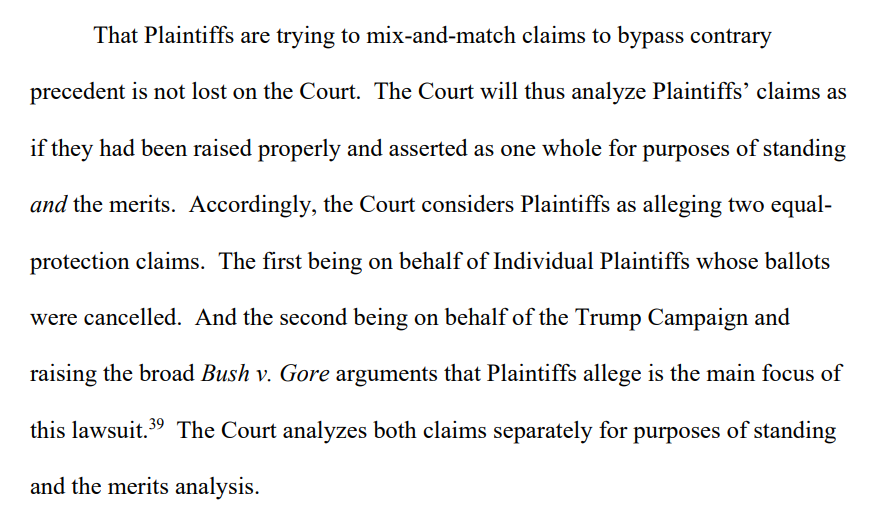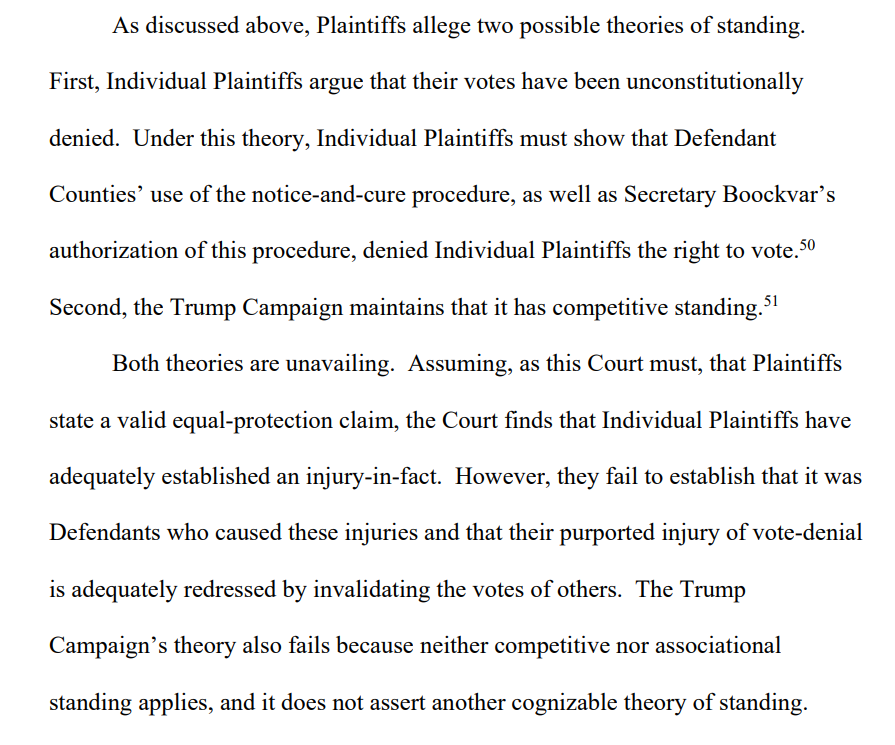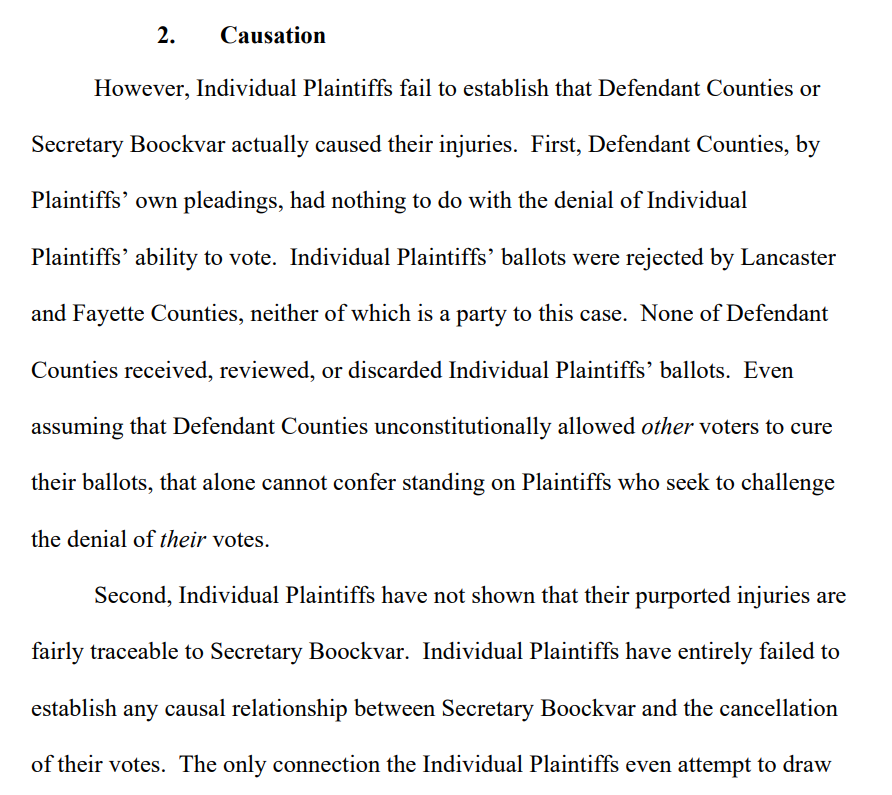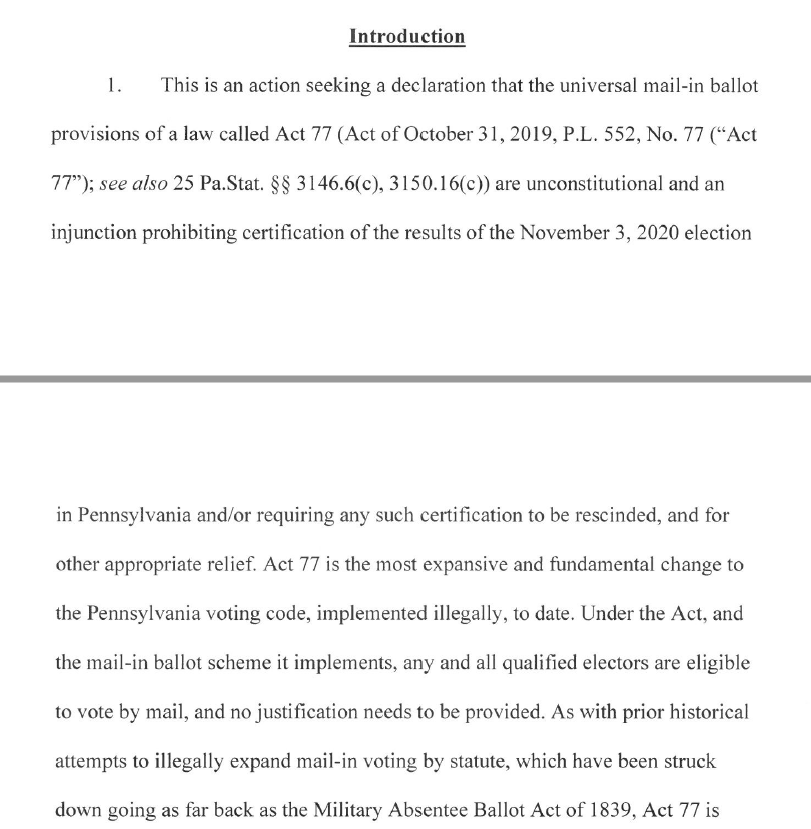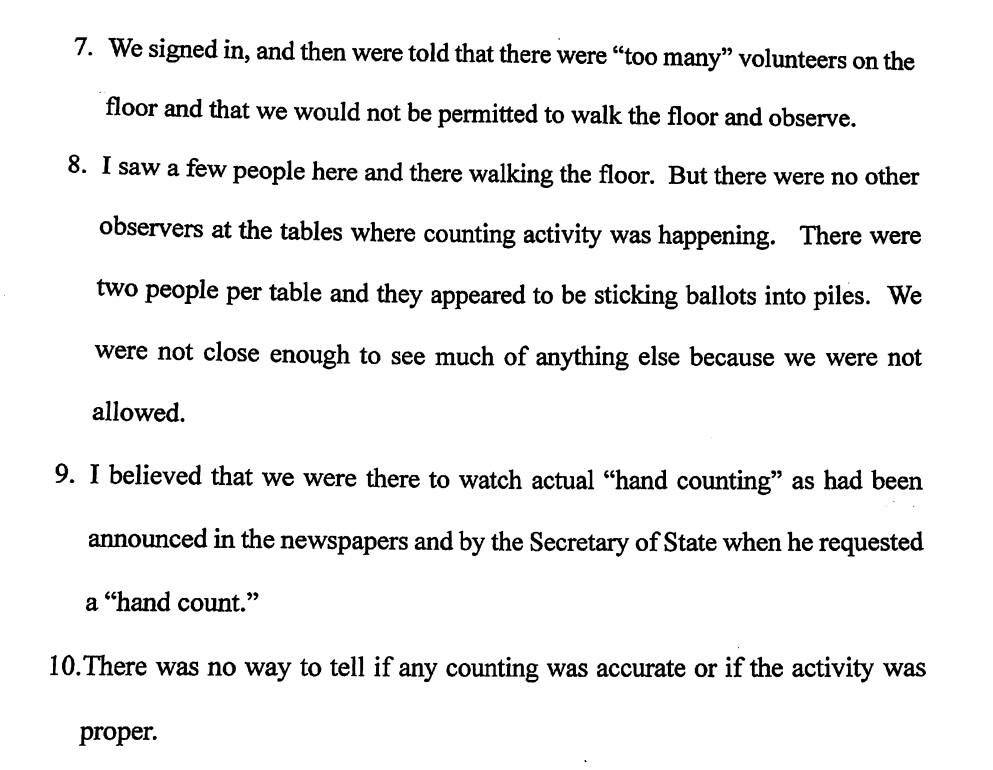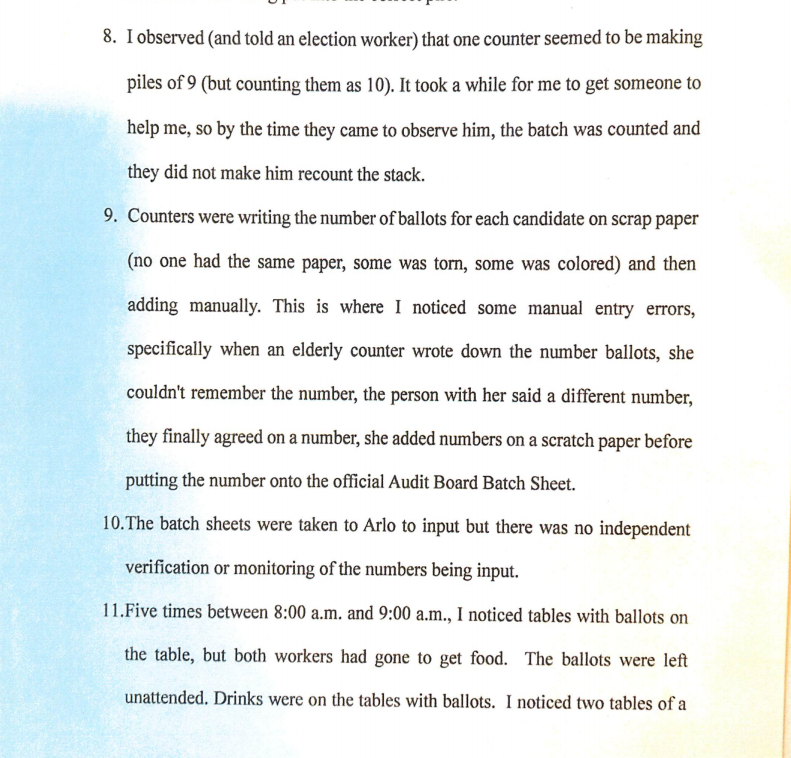
And the court says that even if Wood could bring this lawsuit (which he can't) and if he hadn't waited too long (which he did), he'd also lose on the merits. 

The judge (a Trump appointee), goes out of his way to shoot down Wood's theory of an Equal Protection violation, which is very similar to the arguments Trump's campaign has made in its own lawsuit in Pennsylvania. 

The judge said claims that lots of invalid ballots were counted in Georgia is "not supported by the evidence at this stage." The rejection rate for absentee ballots in Georgia in 2020 was the same as it was two years ago. 

The court also rejects Wood's theory that a settlement agreement that altered voting procedures violated the Elections Clause, because only the legislature can make those rules. The court says the legislature clearly delegated authority to the secretary of state. 
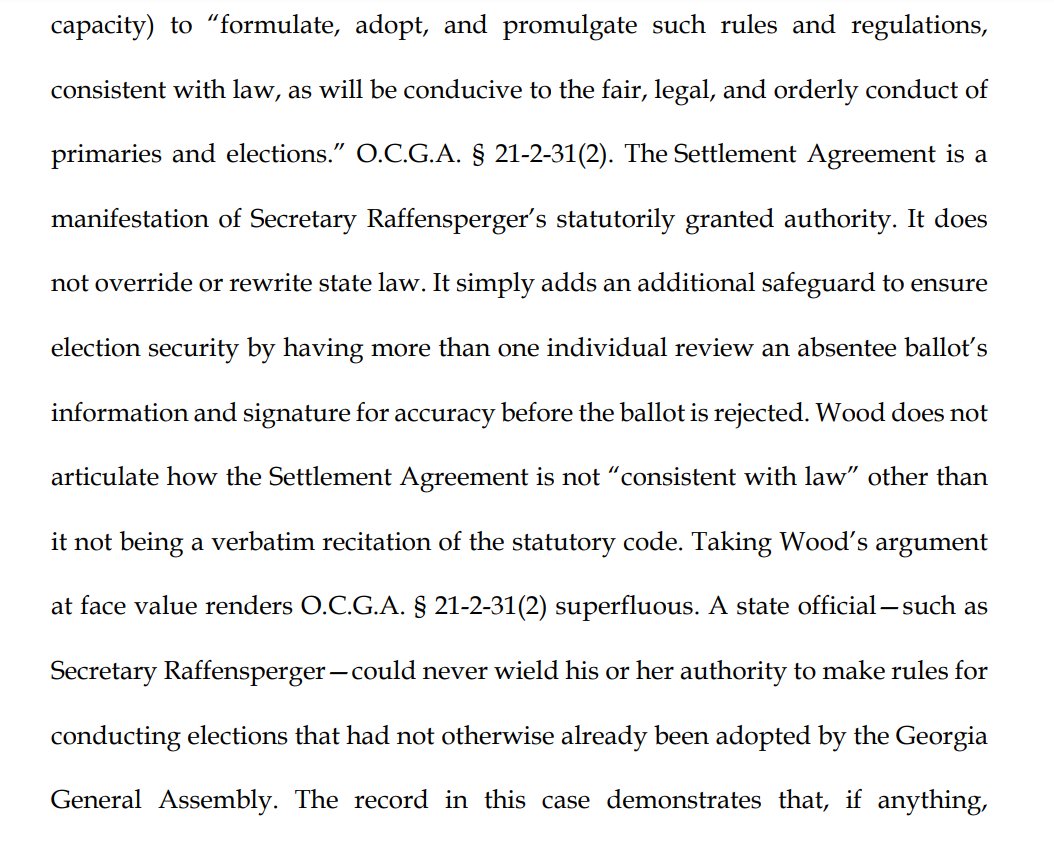
The court says that while some witnesses "speculate as to wide-spread impropriety," the case is really a "garden variety election dispute." And it rejects his claims that partisan observers had a right to monitor vote counting and recounting more closely. 
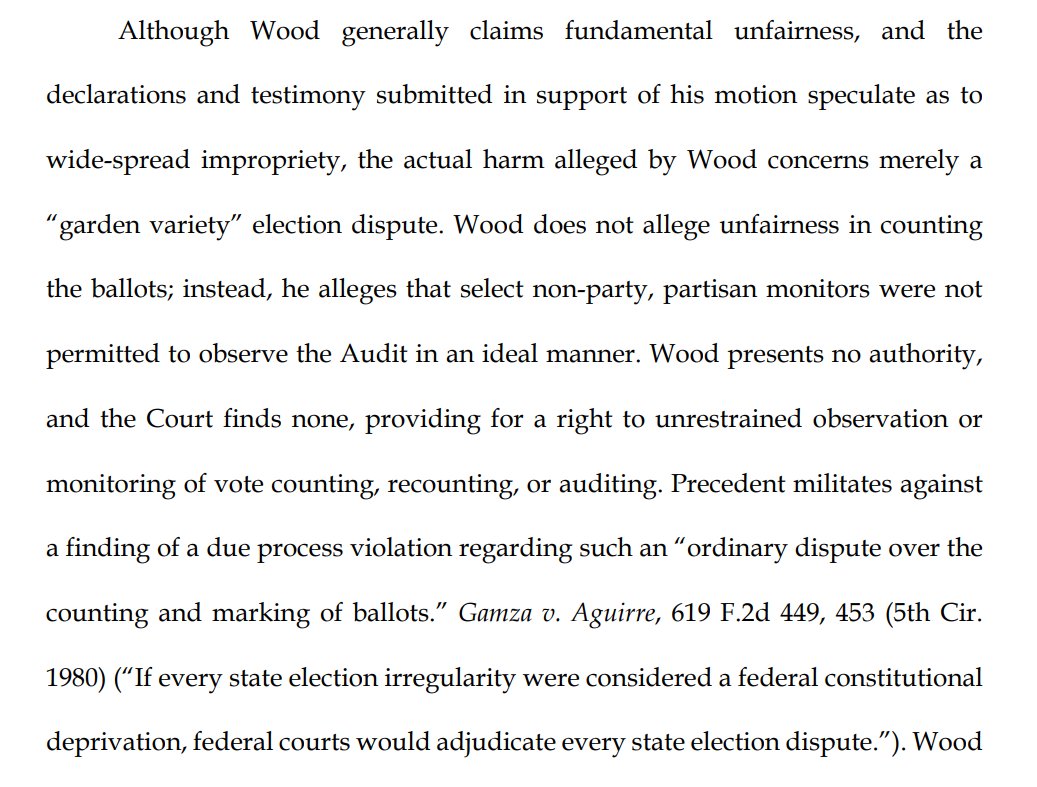
A federal judge took a wrecking ball to the legal effort to upset Trump's loss in Georgia, basically rejecting the challenge in every way possible. And he did it in a way that impugns some of the arguments the president himself is making elsewhere.
courtlistener.com/recap/gov.usco…
courtlistener.com/recap/gov.usco…

[That's it. You've now scrolled all of the doom. Congratulations.]
• • •
Missing some Tweet in this thread? You can try to
force a refresh

